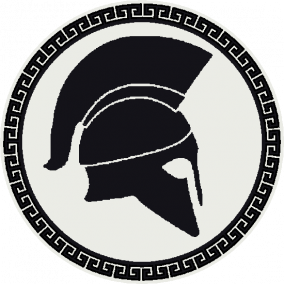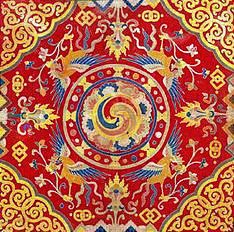
Advertisement

![]() by The Great Imperator Jeffrey » Sun Jun 16, 2019 12:53 pm
by The Great Imperator Jeffrey » Sun Jun 16, 2019 12:53 pm

![]() by Islaevia » Sun Jun 16, 2019 12:54 pm
by Islaevia » Sun Jun 16, 2019 12:54 pm

![]() by Plaetopia » Sun Jun 16, 2019 1:04 pm
by Plaetopia » Sun Jun 16, 2019 1:04 pm
North German Realm wrote:Apologies. Edited.Plaetopia wrote:There's a problem with your application: Q17 "Do individuals enjoy freedom of movement inside the country and of international travel, including in education, residence or employment?" is unreplied. Provisionally, the North German Realm will be assigned the maximum possible score, based on all other replies and assuming a score of 1 in Q17.
Plaetopia Post: Plaetopian economy slowly recovering | A new law passed by the Federal Assembly explicitly recognizes persecution because of sexual orientation as a valid reason for asylum in Plaetopia
![]() by Dushan » Sun Jun 16, 2019 2:17 pm
by Dushan » Sun Jun 16, 2019 2:17 pm

![]() by Plaetopia » Sun Jun 16, 2019 2:37 pm
by Plaetopia » Sun Jun 16, 2019 2:37 pm
Dushan wrote: Any suggestions for future editions of the index? A additional misc field
Plaetopia Post: Plaetopian economy slowly recovering | A new law passed by the Federal Assembly explicitly recognizes persecution because of sexual orientation as a valid reason for asylum in Plaetopia
![]() by The Great-German Empire » Sun Jun 16, 2019 2:39 pm
by The Great-German Empire » Sun Jun 16, 2019 2:39 pm
Vossische Zeitung: The Chancellor, Baron Hartmann, announced in a rally that he will 'work tirelessly against the formation of a society of control' | Hungary edges out Germany 4-3 in Euro Cup final; Kaiser personally congratulates Hungarians for an 'exceptional' game | According to survey, 73% of Germans oppose an introduction of speed limits on major Autobahns

![]() by Kabzeel » Sun Jun 16, 2019 4:29 pm
by Kabzeel » Sun Jun 16, 2019 4:29 pm

![]() by Plaetopia » Mon Jun 17, 2019 12:57 am
by Plaetopia » Mon Jun 17, 2019 12:57 am
The Great-German Empire wrote: Any suggestions for future editions of the index? More on the executive. I mean, the arrangement of power between the Head of State and Head of Government can vary vastly between states.
Plaetopia Post: Plaetopian economy slowly recovering | A new law passed by the Federal Assembly explicitly recognizes persecution because of sexual orientation as a valid reason for asylum in Plaetopia
![]() by Gandoor » Mon Jun 17, 2019 2:26 am
by Gandoor » Mon Jun 17, 2019 2:26 am

![]() by Plaetopia » Mon Jun 17, 2019 2:58 am
by Plaetopia » Mon Jun 17, 2019 2:58 am
Plaetopia Post: Plaetopian economy slowly recovering | A new law passed by the Federal Assembly explicitly recognizes persecution because of sexual orientation as a valid reason for asylum in Plaetopia
![]() by Timuria » Mon Jun 17, 2019 6:27 am
by Timuria » Mon Jun 17, 2019 6:27 am

![]() by The United Chinese Republic » Mon Jun 17, 2019 6:49 am
by The United Chinese Republic » Mon Jun 17, 2019 6:49 am

![]() by Sajnur » Mon Jun 17, 2019 7:39 am
by Sajnur » Mon Jun 17, 2019 7:39 am

![]() by Plaetopia » Mon Jun 17, 2019 7:40 am
by Plaetopia » Mon Jun 17, 2019 7:40 am
Plaetopia Post: Plaetopian economy slowly recovering | A new law passed by the Federal Assembly explicitly recognizes persecution because of sexual orientation as a valid reason for asylum in Plaetopia
![]() by The Land of the Ephyral » Mon Jun 17, 2019 7:57 am
by The Land of the Ephyral » Mon Jun 17, 2019 7:57 am

![]() by Plaetopia » Mon Jun 17, 2019 8:12 am
by Plaetopia » Mon Jun 17, 2019 8:12 am
The Land of the Ephyral wrote:SEPARATION OF POWERS AND FUNCTIONING OF GOVERNMENT
In case national representatives were freely elected, are they able to successfully develop and implement new policies? Does government authority extend over the full national territory? | The Freehold does not understand the first question as it is too vague. Government authority extends over all national territory but is delegated to sub-authorities who answer to the central authority.
Does the legislature have the legislative initiative? What restrictions are placed on its ability to pass laws, including constitutional amendments? | The Freehold must again regrettably inform the surveyor that the first question posed is not sufficiently explained to be understood. The closest concept to a constitution in Ephyral law are the Anomedic Tablets, a series of laws inspired from the Classical Era developed by the first Archon of the SFLE. These, alongside the culturally understood customs, are what proposed laws are measured against to see if they are valid. The Senate's law may be overturned in the event that the presiding Archon is granted excess power in times of crisis. All law must also pass through the tribal assemblies, and if it does not, the law does not become valid even if the Senate has passed it.
Plaetopia Post: Plaetopian economy slowly recovering | A new law passed by the Federal Assembly explicitly recognizes persecution because of sexual orientation as a valid reason for asylum in Plaetopia
![]() by The Land of the Ephyral » Mon Jun 17, 2019 8:17 am
by The Land of the Ephyral » Mon Jun 17, 2019 8:17 am
Plaetopia wrote:Updated.The Land of the Ephyral wrote:SEPARATION OF POWERS AND FUNCTIONING OF GOVERNMENT
In case national representatives were freely elected, are they able to successfully develop and implement new policies? Does government authority extend over the full national territory? | The Freehold does not understand the first question as it is too vague. Government authority extends over all national territory but is delegated to sub-authorities who answer to the central authority.
Does the legislature have the legislative initiative? What restrictions are placed on its ability to pass laws, including constitutional amendments? | The Freehold must again regrettably inform the surveyor that the first question posed is not sufficiently explained to be understood. The closest concept to a constitution in Ephyral law are the Anomedic Tablets, a series of laws inspired from the Classical Era developed by the first Archon of the SFLE. These, alongside the culturally understood customs, are what proposed laws are measured against to see if they are valid. The Senate's law may be overturned in the event that the presiding Archon is granted excess power in times of crisis. All law must also pass through the tribal assemblies, and if it does not, the law does not become valid even if the Senate has passed it.
First question: if and only if national representatives are freely elected, are they able to develop and implement new policies succesfully, or are they unable to pass/amend/repeal laws because of severe political deadlock, or lack of government control over the territory?
Second question: does the legislature have the power to start drafting new laws on its own, or does it depend on other offices (such as the executive) to do so?

![]() by Plaetopia » Mon Jun 17, 2019 10:13 am
by Plaetopia » Mon Jun 17, 2019 10:13 am
The Land of the Ephyral wrote:Plaetopia wrote:Updated.
First question: if and only if national representatives are freely elected, are they able to develop and implement new policies succesfully, or are they unable to pass/amend/repeal laws because of severe political deadlock, or lack of government control over the territory?
Second question: does the legislature have the power to start drafting new laws on its own, or does it depend on other offices (such as the executive) to do so?
1A | If by national representatives you mean the executive branch, then yes they are able to implement new policies successfully. If you mean the legislative branch then they are able to pass / amend / repeal laws as per democratic process of Senatorial vote and tribal assembly.
2A | The legislature does have the power to being drafting new laws independently but this does not guarantee their success on the Senate floor nor at the tribal assemblies. The Freehold thanks you for clearing up these questions and hopes the answers are satisfactory.
Plaetopia Post: Plaetopian economy slowly recovering | A new law passed by the Federal Assembly explicitly recognizes persecution because of sexual orientation as a valid reason for asylum in Plaetopia
![]() by The Sherpa Empire » Mon Jun 17, 2019 10:43 am
by The Sherpa Empire » Mon Jun 17, 2019 10:43 am

![]() by Anollasia » Mon Jun 17, 2019 11:25 am
by Anollasia » Mon Jun 17, 2019 11:25 am

![]() by The Union of British North America » Mon Jun 17, 2019 11:38 am
by The Union of British North America » Mon Jun 17, 2019 11:38 am

![]() by Plaetopia » Mon Jun 17, 2019 12:16 pm
by Plaetopia » Mon Jun 17, 2019 12:16 pm
Anollasia wrote:From 1-10, how pervasive is corruption? (Small explanation appreciated)
From 1-10, how transparent is government activity? (Small explanation appreciated)
Plaetopia Post: Plaetopian economy slowly recovering | A new law passed by the Federal Assembly explicitly recognizes persecution because of sexual orientation as a valid reason for asylum in Plaetopia
![]() by Anollasia » Mon Jun 17, 2019 12:18 pm
by Anollasia » Mon Jun 17, 2019 12:18 pm
Plaetopia wrote:Updated.Anollasia wrote:From 1-10, how pervasive is corruption? (Small explanation appreciated)
From 1-10, how transparent is government activity? (Small explanation appreciated)
There is a problem with your questionnaire. Two questions about corruption and transparency remain unreplied.

![]() by Plaetopia » Mon Jun 17, 2019 12:21 pm
by Plaetopia » Mon Jun 17, 2019 12:21 pm
Plaetopia Post: Plaetopian economy slowly recovering | A new law passed by the Federal Assembly explicitly recognizes persecution because of sexual orientation as a valid reason for asylum in Plaetopia
![]() by Mahrenbach » Mon Jun 17, 2019 3:07 pm
by Mahrenbach » Mon Jun 17, 2019 3:07 pm
Advertisement
Return to Factbooks and National Information
Users browsing this forum: Nioya
Advertisement